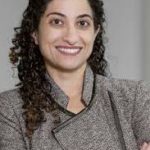Yesterday’s post Confidence and Gender in International Relations got me thinking. The post draws on the excellent survey data from the Teaching, Research, and International Policy (TRIP) project at William and Mary’s Institute for the Theory & Practice of International Relations and notes that in the snap polls conducted by the project over the last year, women international relations scholars choose the response “I don’t know” more often than their male counterparts. They conclude that structural factors such as socialization might explain this “confidence gap” between female and male respondents who possess similar levels of knowledge and expertise.
Full disclosure: I have dutifully completed several TRIP snap polls, I have often selected “I don’t know” and I am a woman. I do not lack confidence in my expertise, but I do know the limits of it, which is why I respond, “I don’t know” when asked about topics outside my realm of expertise.
What is an expert? Experts possess a stock of specialized skills and knowledge about a specific topic. Expertise is acquired either through formal training, education and fancy credentials (the scholars polled by TRIP all have Ph.Ds. in political science) or through experience and practice (policymakers working for the government, the U.N. or a host of other organizations). This specialized knowledge, use of science and evidence, and analytical reasoning confers authority upon IR scholars; our responses on the snap polls are credible and authoritative because of our expertise.
It is useful then, for us to consider Friedman’s distinction between being “in authority” (possessing an institutional role—a professorship—that gives us the right to speak) and “an authority”—(deriving from our knowledge, research, experience). I answer, “I don’t know” because while I am “in authority” as a professor of political science, I am not necessarily “an authority” on nuclear proliferation, FIFA or climate change.
As a discipline, we might consider having a conversation on how we define “expert” and what our professional responsibilities are when called to give expert opinions. If “everyone is an expert” doesn’t that dilute our power and authority? Political pressures have prompted us to debate the value-added of political science—what do political scientists bring to the table that the pundits on television do not? I would argue that the value of a political scientist is recognizing the limits of our expertise; we supply informed analysis on some topics, but not all. We degrade the value of our expertise and the authority of our discipline when we say, “I do know” when we don’t know.
Perhaps there are gendered views on what it means to be an expert. Perhaps more women political scientists intuitively make the distinction between being “in authority” and “an authority.” Perhaps that is a good thing for the discipline. I look forward to seeing the next iterations of this TRIP project that might provide some answers to these questions.
Maryam Z. Deloffre is an Associate Professor of International Affairs, Director of Dean’s Scholars and Director of the Humanitarian Action Initiative at the Elliott School of International Affairs; a Mercator Fellow at the DFG Research Training Group – Standards of Global Governance (Germany); and an Associate Senior Fellow at Centre for Global Cooperation Research, Universität Duisburg-Essen (Germany). Her research focuses on the dynamics of global and humanitarian governance, humanitarian standard-setting, humanitarian and non-governmental organization (NGO) accountability, NGOs, and locally-led humanitarian assistance.


This fantastic. It articulates very precisely goes through my brain when I selectively answer TRIP polls, and why I was frustrated by the imitation in the easier post that my “don’t know”s signaled lack of confidence rather than humility about my areAs of expertise. Thanks!!
And that humility might be a good thing!
I’d recommend Orson Welles’ late film ‘F for Fake’ as an interesting entry point into question the concept of expertise. While he is pointing his critique mostly toward the art world, I think much of it is relevant to academia in general and the social sciences in particular. The main idea is that the modern faith in expertise opens the way for fakery and trickery on a grand scale. This excerpt sums it up:
Orson Welles: What’s new?
Clifford Irving: The experts.
Elmyr de Hory: The so-called experts…
Orson Welles: Experts are the new oracles.
Elmyr de Hory: – are greatly pretentious…
Orson Welles: They speak to us with the absolute authority of the computer.
Elmyr de Hory: – pretend to know something what they only know very superficially.
Orson Welles: And we bow down before them. They’re God’s own gift to the faker.
Clifford Irving: All the world loves to see the experts and the establishment made a fool of.
Great excerpt, Jeremy! It makes me think of the expression that junior scholars hear a lot “fake it till you make it,” which tends to value exuding confidence and certainty over skepticism, humility and uncertainty. Shouldn’t we value nuance over absolute authority? I think so; nuance gets us to more interesting discussions and ideas.
I agree. I find academia to be built upon a huge edifice of entrenched dishonesty. With everyone feeling that they need to appear as experts, the concrete expression of that is knee-jerk rejection of other ideas and obstinate defence of one’s own. It always strikes me as particuarly odd when it’s normative, critical, or poststructuralist theorists that try to hold their ground in this way; a ground that by their own admission is groundless! A bit of consistent skepticism, humility and uncertainty would go a long way to making it all more interesting and probably more productive too.